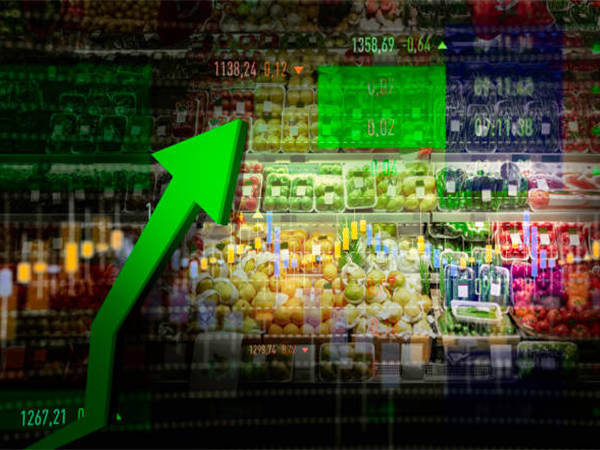
New Delhi: Wholesale inflation (WPI) in India stood at 2.05 per cent for the month of March 2025, down from the 2.38 per cent of the previous month, according to the data released by the Ministry of Commerce and Industry on Tuesday.
In February, the wholesale inflation stood at 2.38 per cent, according to the government data.
The positive rate of inflation in March is primarily due to an increase in the prices of manufactured food products, other manufacturing, food articles, electricity and the manufacture of textiles, etc.
The Food Index, consisting of 'food articles' from the primary articles group and 'food products' from the manufactured products group, decreased from 5.94 cent in February 2025 to 4.66 per cent in March 2025.
Month-over-Month change in primary article groups of WPI shows a decrease by 1.07 per cent to 184.6 (provisional) in March from 186.6 for the month of February 2025.
The price of crude petroleum and natural gas (-2.42 per cent), non-food articles (-2.40 per cent), and food articles (-0.72 per cent) decreased in March as compared to February. The price of minerals (0.31 per cent) increased in March as compared to February 2025.
Wholesale inflation continues to remain in the positive territory for over a year now. Economists often say a little rise in wholesale inflation is good, as it typically incentivises goods manufacturers to produce more.
In April last year, wholesale inflation went into negative territory. Similarly, in July 2020, in the initial days of COVID-19, the WPI was reported as negative.
Notably, wholesale price index (WPI)-based inflation was in the double digits for 18 months in a row until September 2022.
DPIIT releases the index number of wholesale prices in India on a monthly basis on the 14th of every month (or the next working day, if the 14th falls on a holiday) with a time lag of two weeks from the reference month, and the index number is compiled with data received from institutional sources and selected manufacturing units across the country.
The country had been facing high food inflation over the past few months, mainly due to an increase in the inflation of vegetables, fruits, oils and fats. It now seems to have abated.